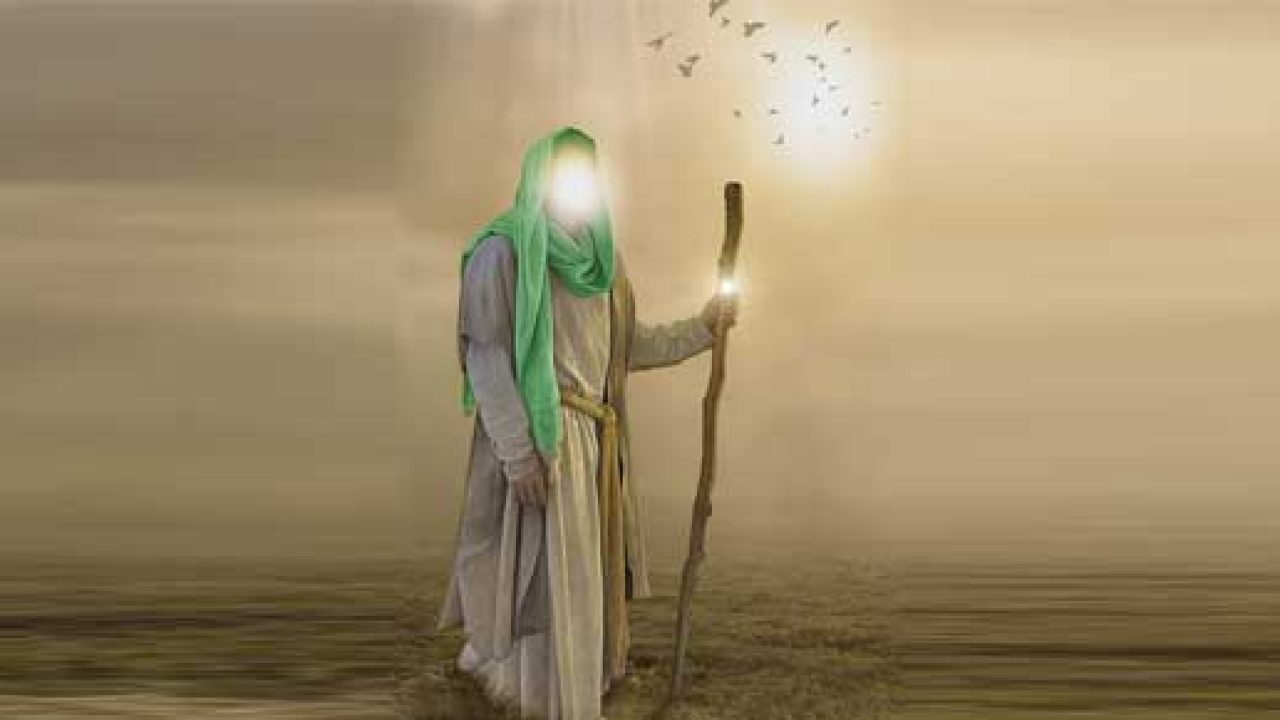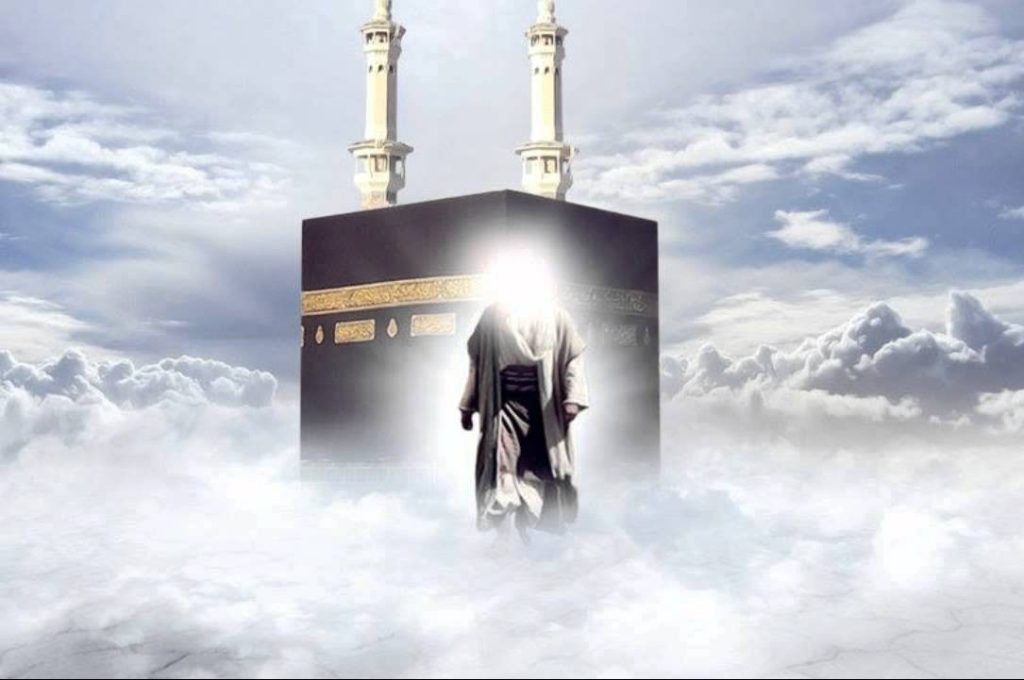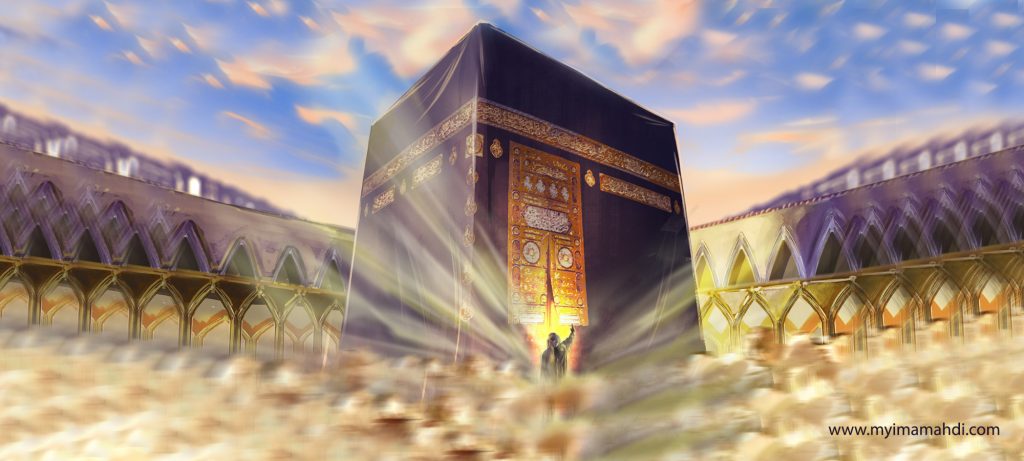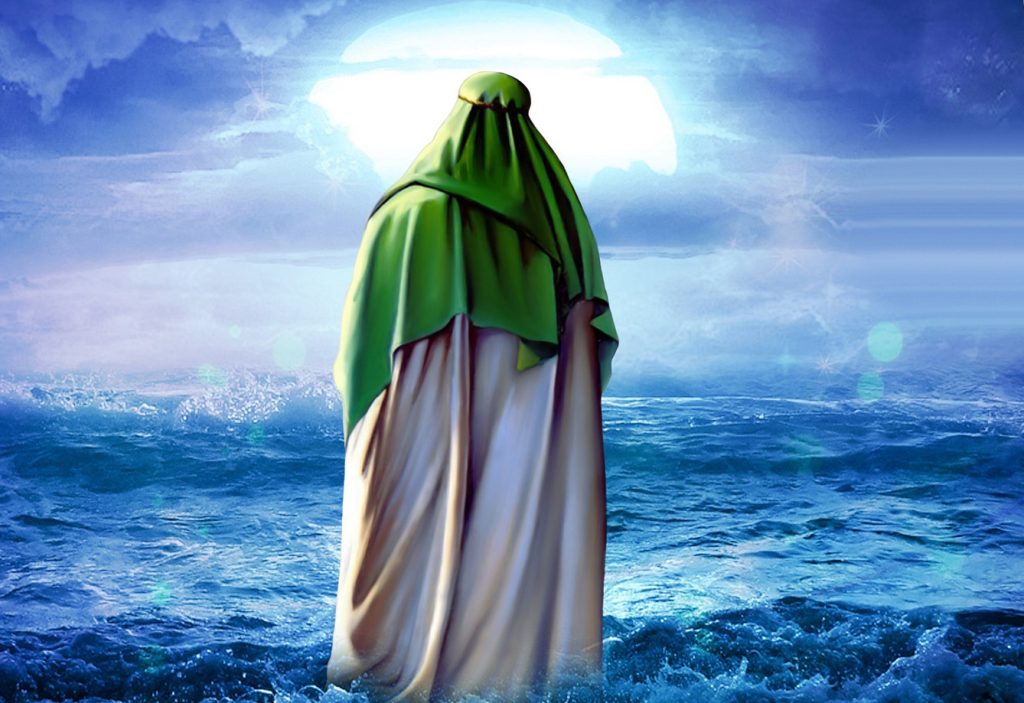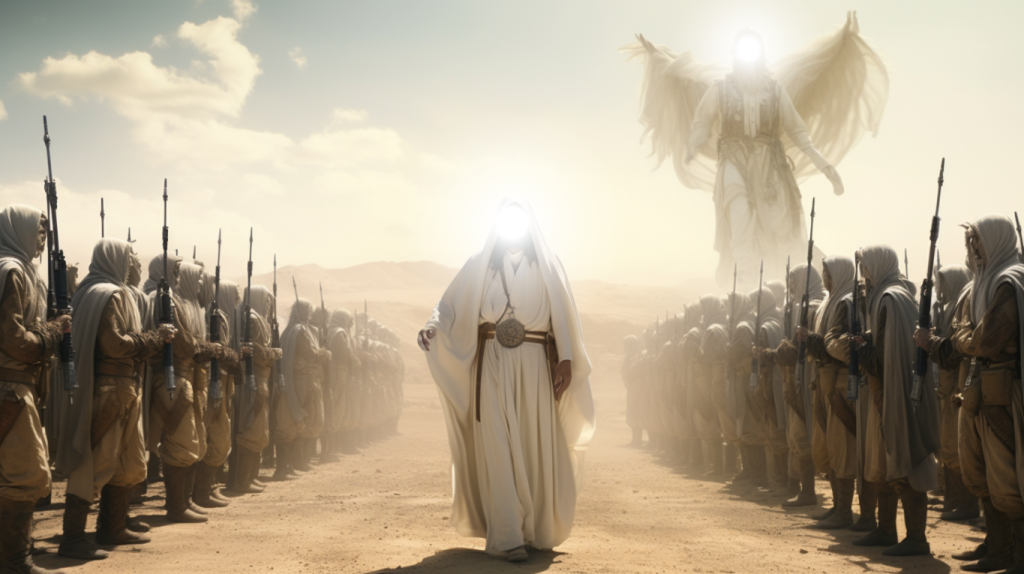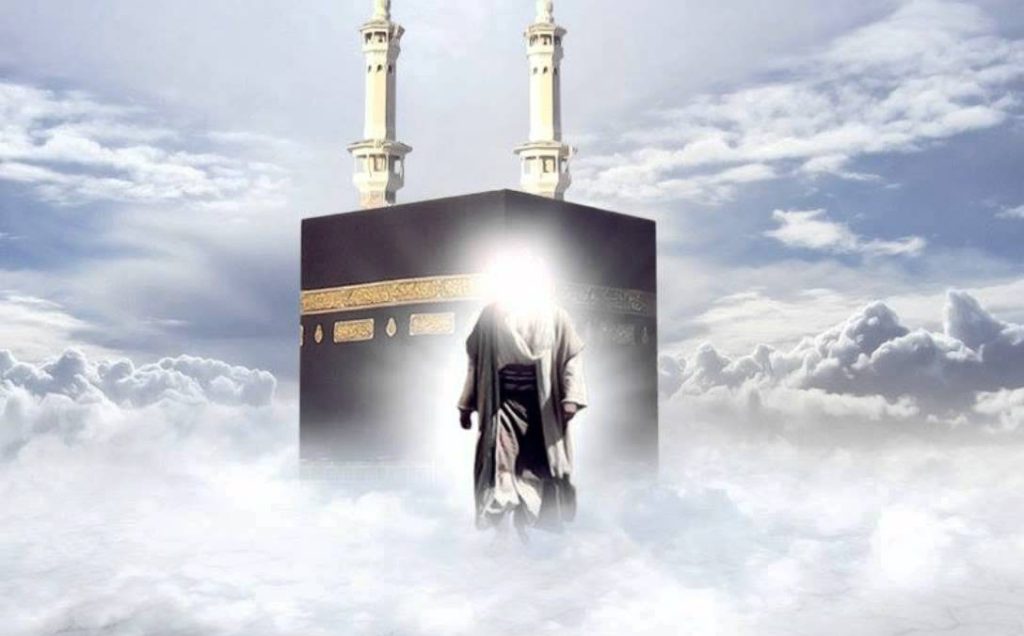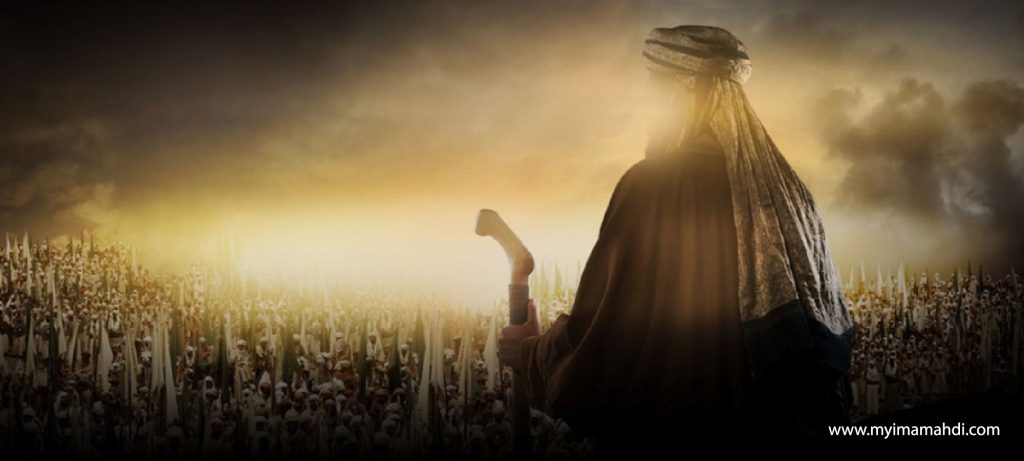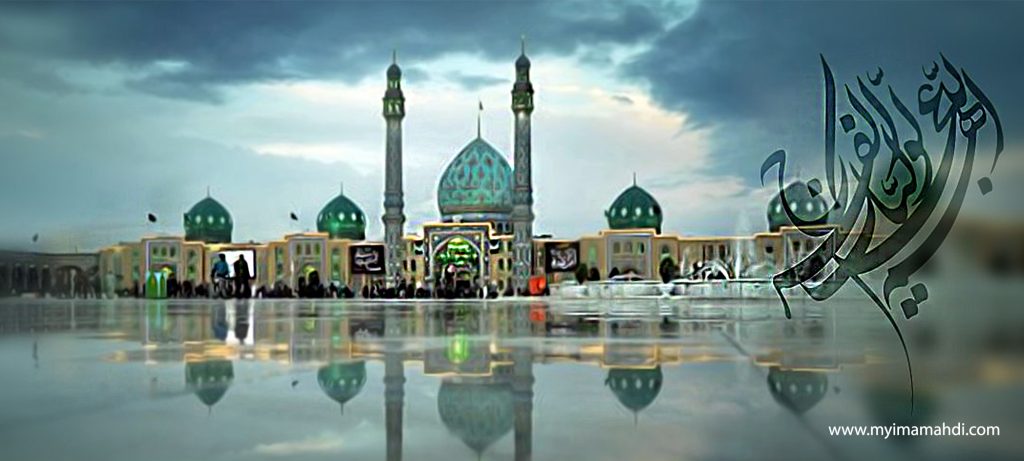In the Name of Allah, Most Gracious, Most Merciful
Imam Mahdi, the promised existent
Chapter One
General Leadership (Imamate) in The Shia Religion – 3rd part
Signs of an ignorant life
Ignorant life is a general concept that has different signs and levels. From superficial and weak to deep levels. A period in Arab life before Islam, which is called The Ignorance Period, is an example of its low level. This period was the darkest time of the Arabs’ life, where there was little trace of human culture and civilization.
The description of this dark and black era is described in the most eloquent way in the luminous expression of the king of words, Imam Ali (the first imam of the Shias): You had the most ugly religion and ritual from a cultural point of view, and you lived in the worst houses in terms of livelihood. You lived among rough stones and deaf snakes that could not be prevented from attacking humans by any means. Your drinking water was dark and your food was without stew and hard. You shed each other’s blood and cut ties with your relatives. Idols were standing among you and sin was covering you all over.
Burying girls alive, which is mentioned in history and divine verses: “And when one of them gets the good news of a girl, his face turns black while he swallows his anger and sorrow. He runs away from his people because of the bad news that they have given him. And he thought whether to keep her in contempt or hide her in the dirt. Oh, how bad they judge.” (Surah Nahl verses 58 and 59) relates to this era (something like abortion today). Although the mission of the Holy Prophet of Islam put an end to this dark period and put an end to that depravity, what goes on until the advent of the blessed Imam Mahdi in the name of ignorance and is mentioned in religious traditions and texts, is about the deeper levels of ignorance. Because this level of ignorance does not mean the absence of manifestations of life and civilization and the loss of prosperity and its means. There were a lot of extravagant rich people in the era of Ignorance and they had many means of prosperity and manifestations of civilization and life of that time, but from the perspective of the Holy Quran, their life is ignorant life.
Imam Mahdi
In the culture of the Holy Quran, the criterion of an ignorant life or a wise life is not progress in industry or enjoying prosperity and luxurious means of life. The Holy Qur’an introduces peoples who, despite enjoying great industrial progress and benefiting from social welfare, progressed from ignorance to such a level that they received divine punishment and were deprived of God’s mercy and finally perished. The people of Ad and Thamud and the Companions of Hajar are among these people. Although the people of Ad were unique in the industry of urban development, they had an ignorant life. The people of Aad were at the level of city-building that the Qur’an mentions: “The city of Aram, which had palaces, the likes of which had not been built in any other city” (Surah Fajr, verses 7 and 8). And the people of Thamud also used to level the mountains to build strong and beautiful buildings: “And the people of Thamud used to cut mountains and rocks in that valley” (Surah Fajr, verse 9). And the companions of Hajar also built strong houses for themselves in the heart of the mountains and were the leaders of their time in this industry: “And they carved houses out of the mountains for themselves to stay safe” (Sura Hajar verse 82). However, with all these advances in the material necessities of life, the Qur’an considers their life to be ignorant and introduces the punishment that will hit them as the result of their ignorant behavior and life: “We afflicted them with the punishment of what they used to do” (Surah A’raf, verse 96). . Just as the empires of Iran and Rome, which were symbols of prosperity and civilization at that time, he considers them to be ignorant.
The criterion of living ignorantly and dying ignorantly is that a person is not familiar with his God and God’s representatives, while he has eternity ahead of him.
Imam Mahdi
The expression “died an ignorant death” is also used in many other cases, such as a will: “Whoever dies without a will has died an ignorant death.” But there is a difference between these two interpretations: in the hadith of the will, the death of an ignorant person refers to the negation of perfection, but in the noble narration, which is about knowing the Imam of each era, it means the negation of the truth.
Such as the phrase “his prayer is not accepted” in the noble narration of the Prophet, “the prayer of the neighbor of the mosque is not accepted except in the mosque” and “the prayer is not accepted without reciting Surah Hamad”, which in the first one means negation of perfection and in the second one means negation of truth.
The explanation that “his prayer is not accepted” in the second narration means that if the person praying intentionally does not recite Surah Hamad in his prayer, he has basically not performed the prayer, just as the prayer of a person without ablution is basically not a prayer:
“One who does not perform ablution, his prayer will not be accepted.” However, “his prayer is not acceptable” in the first narration, the emphasis on attending the congregation for the neighbor of the mosque means the negation of perfection. That is, the prayer of the neighbor of the mosque, who does not offer his prayer there, is not a perfect prayer, and his action does not reach the level of perfect perfection.
Imam Mahdi
Ignorant death in the honorable hadith of the will, based on rational and narrative evidence, refers to the negation of perfection. This means that whoever dies without a will is deprived of a complete rational life, even if he has a little of this rational life. However, the negation of intellectual life in the narration of knowing the Imam of each age is the negation of truth, not the negation of perfection. That is, such a person has basically lived an ignorant life and has never benefited from a reasonable life, and on this basis, his death will be nothing but an ignorant death.
Ignorant life and death in the culture of revelation
God’s word and divine revelation are the life-giving factor of human societies: “O you who have believed, answer the call of God and the Prophet when he calls you with a life-giving message” (Surah Anfal, verse 24). Revelation and prophethood revive human society, and since it is equal to the ruling principle in the matter of the Qur’an and the imams based on the harmony and unity of the Holy Qur’an and the imams, the ruling of each is the ruling of the other. Therefore, answering the call of the imams is also life-giving.
Imam Mahdi
Ignorant death is a sign of ignorant life, and an ignorant life is equivalent to death in the culture of revelation, and the Holy Quran does not consider those who think ignorantly to be alive: “To warn the one whose heart is alive, and the word of punishment will come true on the disbelievers” (Surah Yasin verse 70). In this verse, God Almighty has contrasted the living and the unbeliever, not the believer and the unbeliever. It is as if he said that man is either alive or a disbeliever.
In many cases, the Holy Qur’an expresses four things with useful brevity, in such a way that it mentions two of them which are unequal in appearance, but are equal in truth and inwardly. And two other things are clear from the ratio of those two mentioned things. For example, in this verse, he contrasted the living and the unbeliever and said that man is either alive or unbeliever, although according to the conventional division, man is either alive or dead, then a living man is either a Muslim or an unbeliever. The method of the Qur’an in this division is in the form of saying that a person is either a believer or a dead person.
Imam Mahdi
That is, the revealed culture considers the unbeliever to be dead, and since it used the title of living against the unbeliever and the title of unbeliever against the living, it becomes clear that in the eyes of the Qur’an, the unbeliever is actually dead, and true life belongs only to those who believe. Although these opposites are different in appearance, in fact they are never different but equal.
Whoever dies ignorantly, has lived ignorantly, and whoever lives ignorantly does not benefit from real life. He who does not recognize the Imam of his era and does not stand under the sun of his province, lives an ignorant life and is devoid of human life, although he has an animal life. In the same way, if a person knowingly and deliberately does not submit to the authenticity and truth of the Qur’an and does not accept it and does not know the divine word, he is called dead in the Qur’anic culture, the one who does not establish a guardian relationship with the Imam of his time and does not recognize the guardianship of the Imam of his time or does not tolerate it, is truly dead and will never benefit from the life of the Qur’an which is in harmony with life in the light of Imam’s guardianship


